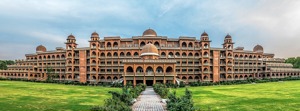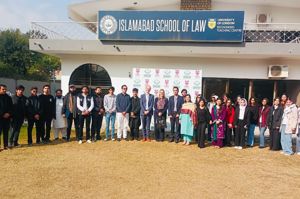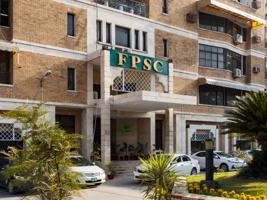
Pakistan’s higher education landscape has taken a giant leap forward as 47 universities from the country secured spots in the prestigious Times Higher Education (THE) Asia University Rankings 2025. This is a significant milestone not only for individual institutions but also for Pakistan’s academic community as a whole. The 2025 edition of the rankings showcases how Pakistan’s universities are increasingly becoming competitive on a global scale, especially in terms of research productivity, teaching quality, and international collaboration.
This article delves into the rankings, Pakistan’s performance, institutional highlights, and the broader implications for higher education in the country.

What Are THE Asia University Rankings?
The Times Higher Education (THE) Asia University Rankings are part of the globally recognized THE World University Rankings series. These rankings evaluate Asian institutions based on 18 performance indicators across five key areas:
-
Teaching (learning environment)
-
Research (volume, income, and reputation)
-
Citations (research influence)
-
International Outlook (staff, students, and research)
-
Industry Income (knowledge transfer)
In 2025, 853 universities across 35 Asian countries were assessed, making it one of the most competitive and comprehensive academic rankings in the region.
Pakistan’s Strong Performance in 2025
Pakistan's participation in the 2025 Asia rankings marks a significant upward trend, with 47 universities now ranked compared to 40 in 2024, 29 in 2023, 21 in 2022, and just 16 in 2021. This 17.5% year-over-year increase signifies growing regional and global academic recognition for Pakistan’s higher education institutions.
The country is now the sixth most-represented nation in Asia and ties with Taiwan in the 14th position globally—a testament to the evolving academic and research ecosystem in Pakistan.
Top Performing Universities from Pakistan
Here are the Pakistani universities that made it to the 2025 rankings, along with their positions:
Highest Ranked
-
Quaid-i-Azam University: Ranked =137, this Islamabad-based institution continues to lead Pakistan's higher education sector.
-
National University of Sciences and Technology (NUST): Positioned at 145, known for its strong STEM programs and research infrastructure.
-
COMSATS University Islamabad: At 187, COMSATS remains a key player in science and technology education.
Other Notable Institutions (201–300 Range)
Several institutions ranked within the 201–300 bracket, including:
-
Government College University, Faisalabad
-
Sukkur IBA University
-
University of Engineering and Technology (UET), Taxila
-
Air University
-
Lahore University of Management Sciences (LUMS)
-
University of Malakand
-
University of the Punjab
-
Capital University of Science and Technology
These universities showed strengths in both research and teaching, reflecting their growing influence.
Institutions Ranked 301–500
This category includes:
-
Ghulam Ishaq Khan Institute of Engineering Sciences and Technology (GIKI)
-
Abdul Wali Khan University, Mardan
-
International Islamic University, Islamabad
-
PMAS Arid Agriculture University, Rawalpindi
-
University of Management and Technology (UMT)
-
Islamia University of Bahawalpur
-
University of Lahore
-
University of Veterinary and Animal Sciences, Lahore
These institutions are notable for improvements in citations and international collaborations.
Universities in the 501+ Range
Institutions such as the University of Sargodha, Mehran University of Engineering and Technology, University of Azad Jammu and Kashmir, and Kohat University of Science and Technology are now part of the rankings. They may not yet be in the top tier, but their inclusion signals growth and ambition.
Additionally, universities like Dow University of Health Sciences, BUITEMS, University of Karachi, NED University, and NUMS are ranked in the 601+ range, reflecting broader participation from medical and technical universities.
Role of Reporters in the Rankings
Apart from ranked universities, 47 Pakistani institutions participated as "reporters." These are institutions that submitted data for evaluation but did not meet the full criteria for a formal rank. Their participation is essential as it indicates intent and transparency, and many of them are likely to enter the rankings in the near future.
What’s Driving the Growth?
Several factors have contributed to Pakistan’s improved presence in the 2025 rankings:
-
Increased Research Output: Pakistani universities are publishing more research papers in indexed journals than ever before.
-
Government Initiatives: Support from the Higher Education Commission (HEC) and targeted funding for research projects have helped boost university infrastructure.
-
International Collaboration: Partnerships with foreign universities and increasing mobility among faculty and students have enhanced Pakistan’s academic profile.
-
Quality Assurance Mechanisms: Implementation of quality enhancement cells (QECs) and stricter academic regulations have raised standards.
Impact on Internationalization
Improved rankings enhance Pakistan’s reputation on the global academic stage. It opens doors for:
-
More international student enrollments
-
Academic partnerships
-
Cross-border research opportunities
-
Faculty exchange programs
This also helps local students by providing them exposure to a more globalized education.
Challenges and the Way Forward
Despite the progress, Pakistani universities still face challenges such as:
-
Limited research funding per capita
-
Brain drain of top researchers
-
Infrastructure disparities between public and private universities
-
Low international faculty ratios
To maintain and improve ranking positions, institutions need to focus on:
-
Increasing research visibility and impact
-
Investing in digital and physical infrastructure
-
Enhancing faculty development programs
-
Encouraging innovation and entrepreneurship
The Times Higher Education Asia University Rankings 2025 have highlighted Pakistan’s promising trajectory in higher education. From just 16 universities in 2021 to 47 in 2025, the journey has been impressive. With continued investment in research, teaching, and international collaboration, Pakistan has the potential to not only climb higher in rankings but also to position itself as a regional academic powerhouse.



.jpg)













Share your comments & questions here
No comments yet. Be the first to comment!